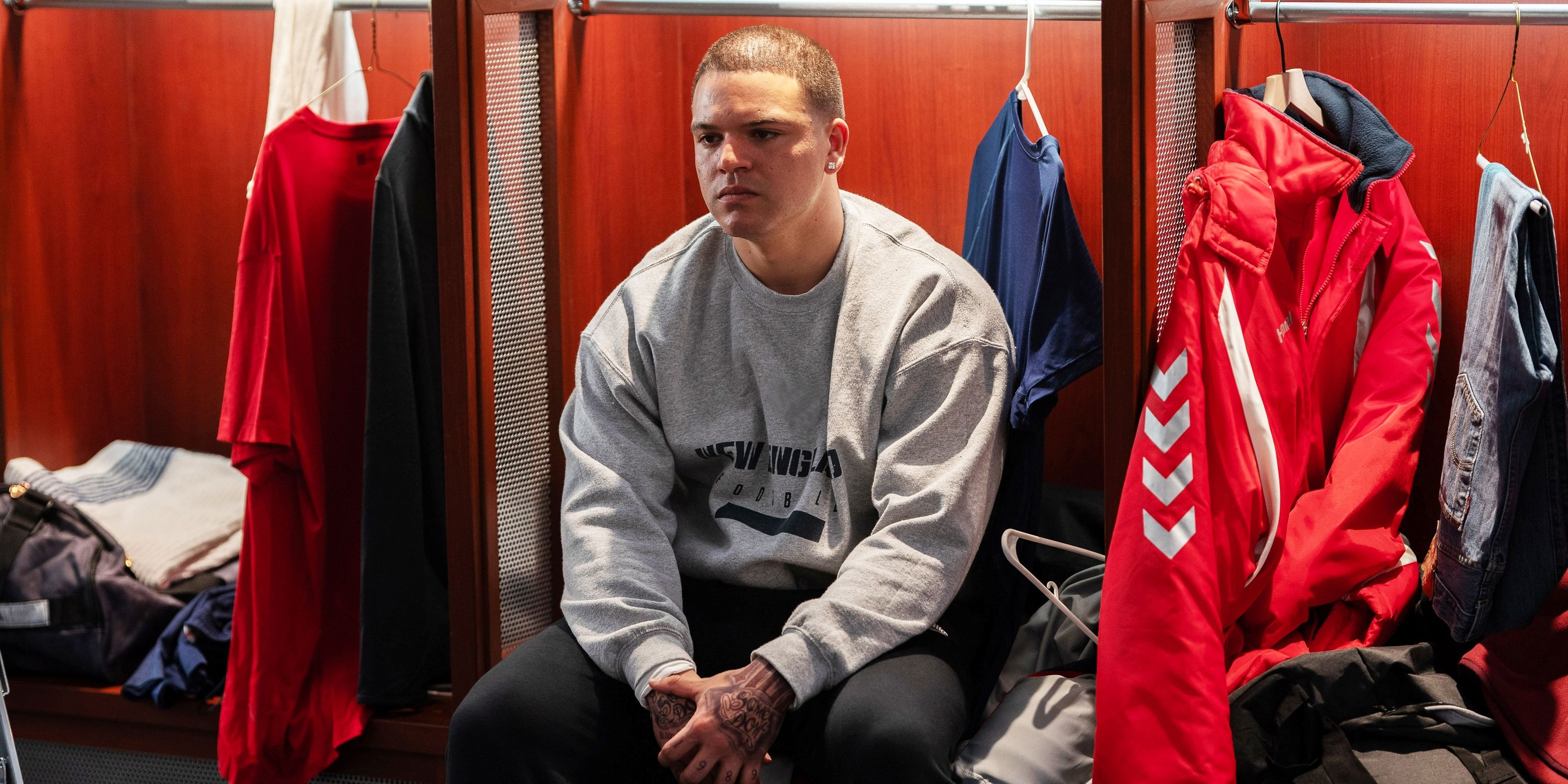‘American Sports Story: Aaron Hernandez’s Josh Rivera on the Football Star’s Complicated Downfall
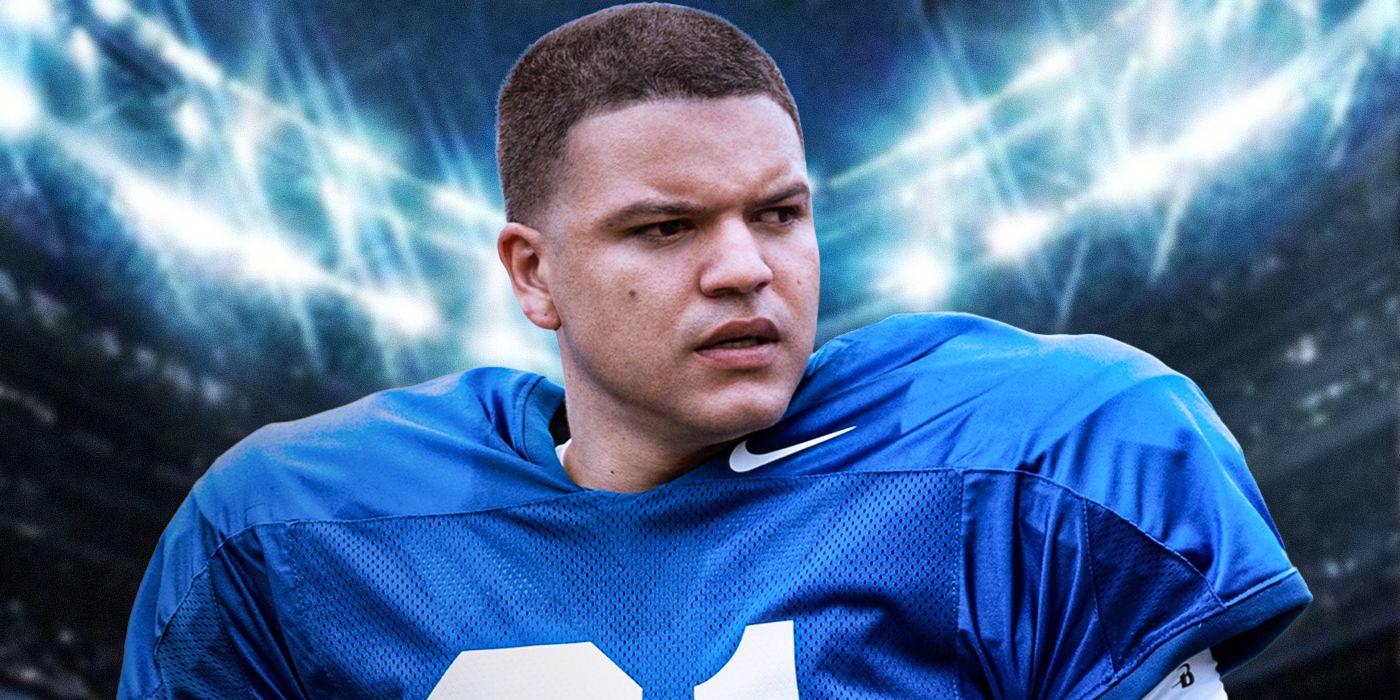
[Editor’s note: The following contains some spoilers for American Sports Story: Aaron Hernandez.]
The Big Picture
- The FX series ‘American Sports Story: Aaron Hernandez’ explores the rise and fall of the troubled NFL star.
- Actor Josh Rivera learned valuable skills from filmmakers like Steven Spielberg and Francis Lawrence, before leading the 10-episode series.
- The series delves into Hernandez’s struggles, legal troubles, and tragic ending, shedding light on the dark side of professional sports.
From executive producer Ryan Murphy, the first installment of FX‘s American Sports Story is focused on the rise and fall of NFL superstar Aaron Hernandez (Josh Rivera) and based on the podcast Gladiator: Aaron Hernandez and Football Inc. Hernandez grew up with aspirations for a football career, but a family life full of challenges and quickly achieved star status led to struggles resisting temptation. While struggling to figure it all out, he spends some time with teammate Tim Tebow (Patrick Schwarzenegger), hoping to find the guidance he needs. When he doesn’t get whatever he felt he was missing, he spiraled until he found himself locked in a cell, convicted of murder before taking his own life.
During this one-on-one interview with Collider, Rivera talked about what he learned from working with filmmakers like Steven Spielberg and Francis Lawrence and how he carried that with him, transitioning to leading a TV series, the dynamic between Aaron Hernandez and Tim Tebow, what it was like to see himself with facial prosthetics and tattoos, how he trained to embody an NFL player, the day he was most nervous on set, and the dangerous path that eventually ended Hernandez’s life.
Josh Rivera Took Great Value From Working With Filmmakers Steven Spielberg and Francis Lawrence
Collider: You’re still pretty early on in your acting career, but you’ve already been a part of these big projects, like West Side Story and The Hunger Games: The Ballad of Songbirds & Snakes, and now you’re leading this TV series. What did you learn on set with filmmakers like Steven Spielberg and Francis Lawrence that you feel helped you in leading a production like this? And now that you’ve had this experience, what do you think you’ll carry with you from now on?
JOSH RIVERA: That’s a good question. I learned a lot about workplace etiquette. Coming into West Side Story, I hadn’t done a feature film before and I really didn’t know anything about what day-to-day filming was like. So, starting from there, it was cool just to figure out how to navigate working on a film set. The team there was really generous, in that they would let me go behind the monitors and watch all the playback and ask questions about how things worked, which is a really, really cool introduction to the world. And then, something that was more prevalent on Francis Lawrence’s set for The Hunger Games was that he was very, very receptive to input, which was really cool. He would ask us questions about how we wanted the scene to go, which instilled in me that my ideas are valuable and I can offer things. That was a cool thing to have, especially before something like this, where it was required that I give my input because otherwise it would be very robotic and it wouldn’t quite work. It’s been a crazy ride, the last few years, hasn’t it? This was the first thing I’ve ever led. I did not have the luxury of hiding behind my castmates, but it was a very, very cool opportunity. It was such a wonderful challenge. It’s cool to think that I carried some other stuff with me from previous sets.
It’s not just that you’re embodying Aaron Hernandez in this, there are a variety of actors playing a variety of NFL players. What was it like to see what your castmates were doing with their performances and feeding off of what they brought to it?
RIVERA: It was great. There was a good environment on the set to really just bring whatever it was that you had to the table. People felt very free to be themselves and imbue their own personalities into their character. That was very gratifying to play off of. That’s the kind of stuff that makes acting really fun. When everybody can bring parts of themselves, it’s a very roundabout way of getting to know other people. With that said, as far as the performers who were on the football field with us, a lot of those people were actual either ex-NFL players or players in their off season. They’re contracted with this company, called Game Changing Sports, that helps out with a lot of sports movies and TV shows. A lot of the guys were just dudes who offered to be in a show to be the big guy in the show, and they were so much fun. I really loved those dudes.
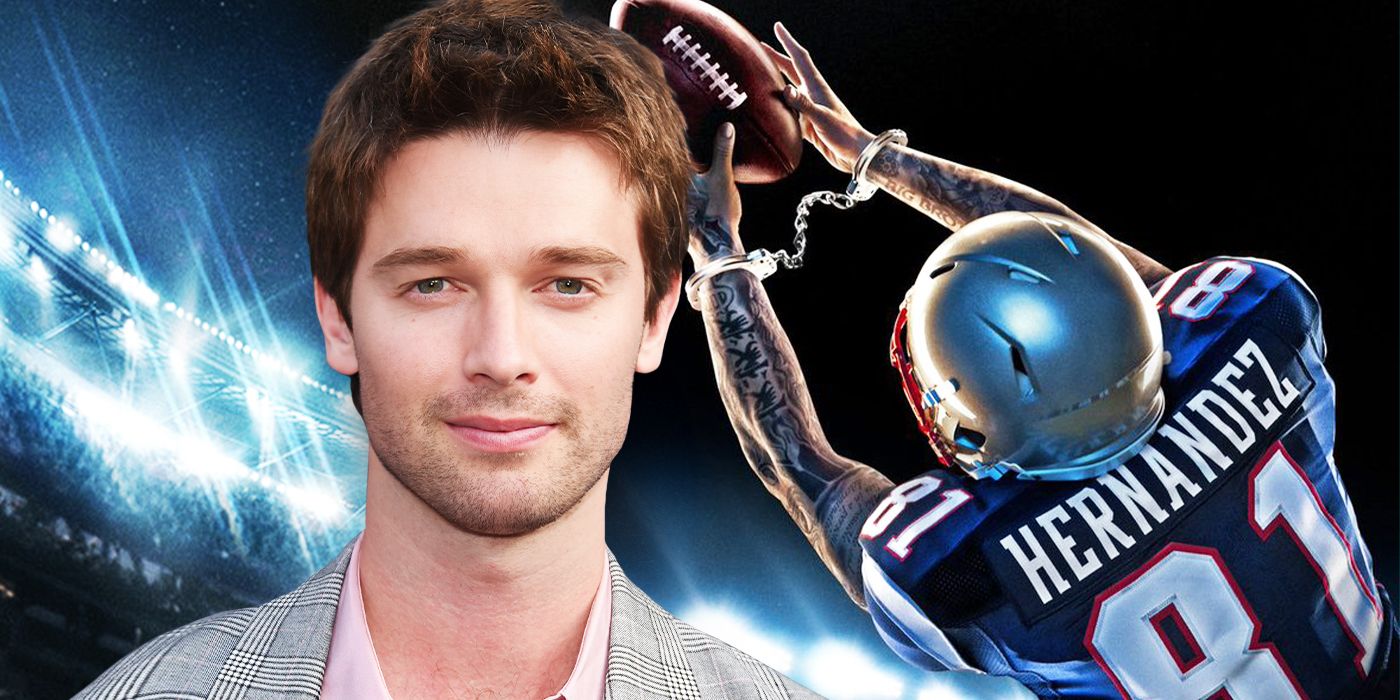
Related
Patrick Schwarzenegger Channels Tim Tebow for ‘American Sports Story: Aaron Hernandez’
Schwarzenegger also talks about how making Season 3 of ‘The White Lotus’ was an experience he’ll never forget.
I read that, as part of the auditioning process for this, you read with Patrick Schwarzenegger. How did that relationship and dynamic evolve, from when you read with him in the audition to actually shooting the scenes together? What was that like to explore?
RIVERA: Starting off with that, initially, was pretty helpful. I didn’t have access to the entire script when I was auditioning, so it was really helpful to have this very interesting snapshot of a period of time in his life where he needed help on a spiritual level, which is very specific. It’s a very specific point in a person’s life to be asking spiritual help from somebody else, and to approach it, the very first time, from that angle, gave me some interesting ammunition to approach the character as a whole, from this person who’s just constantly questioning themselves and questioning why they desire the things that they do. It was a neat little springboard to be able to audition that way, and Patrick is just great. I love Patrick. I’ve only got good things to say about him. He’s a real good guy. He made me very comfortable in the audition room, which was cool. We got to do some improv together, which was funny. It was all good stuff.
Prosthetics and Tattoos Helped Josh Rivera Transform Into Aaron Hernandez for ‘American Sports Story’
Was it personally weirder for you to see yourself with a prosthetic on your nose or with all the tattoos on your body?
RIVERA: The facial augmentations are honestly nice because when I’m watching the show, it feels like there’s a real tangible separation between me and this person that I’m playing. That’s cool because when that’s not there, I get really self-conscious. It’s very difficult to watch myself, but because there’s this physical separation on my face that just makes it a lot easier to digest from an objective point of view. That being said, the tattoos were cool. I wanted to see what I looked like with tattoos, and now I’ve gotten to, so that’s neat.
When it came to football, this is a guy who was considered one of the best players in the league. How do you go about looking like you were in the NFL? Was that very specific training with very specific requirements?
RIVERA: We had a trainer come in who helped me work out, and I was working out all the time. That was pretty straightforward. You just lift weights and try to get really big. But then, because you’re building so much muscle, if you build muscle really fast, it’s very easy to lose dexterity. So, meanwhile, I was going out and doing ladder drills and focusing on foot work. I am not, in general, a very tactile gentleman. I’m not very dexterous. I’m quite clumsy. So, that was tough. Some of the more specific football footwork and technique stuff was really difficult. It was cool to learn and to dust off the skills, but I won’t lie, that was pretty difficult.
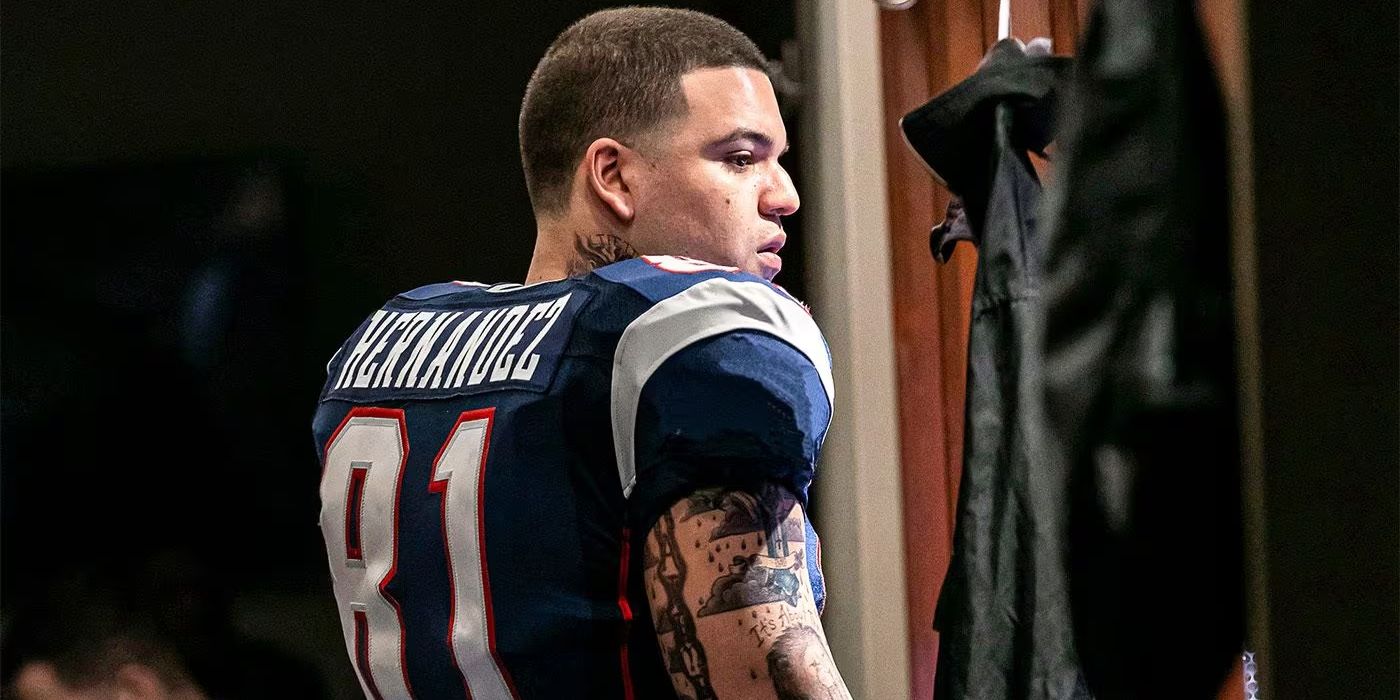
Related
The True Story Behind ‘American Sports Story: Aaron Hernandez’
Hernandez will forever be memorialized as a representation of the dark side of American sports.
Did you have a day or a moment, early on, when you were trying to figure out how to bring everything together, where you felt really locked into it?
RIVERA: I don’t remember if that specifically happened. I think I realized after the fact that it had already happened. The strike happened and we ended up having to stop because of the strike about halfway through. We were halfway through the fifth episode. I remember when there was talk that we’d be coming back pretty soon, I was like, “Oh, my gosh, I don’t even remember what I was doing.” And then, I remember getting back to set and just falling right back into it and being like, “Oh, I didn’t realize I had it like that.” It was just in my bones. I couldn’t tell you the moment that happened, but I figured it out the day after the strike ended.
‘American Sports Story: Aaron Hernandez’s Josh Rivera Has A Shallow Reason for His Most Nervous Day on Set
What was the day that you were most nervous walking onto the set, and how did the outcome compare?
RIVERA: I have a really shallow answer for you. It was when I had to be naked. That was the first time I ever had to be naked on set, and I just freaked out about it for months. I remember seeing it and it was so quick, and I was like, “Oh, my gosh, all that agonizing and it’s just a quick little thing.” That’s not a very triumphant story of being proud of my work, but I was very freaked out to be naked on set. Everybody was great about making everyone comfortable too, so it was all right.
The sex scenes in this all have underlying aspects to them, as well.
RIVERA: We don’t have a lot of explosive romance in there. There’s some color of unsettling to just about everything.
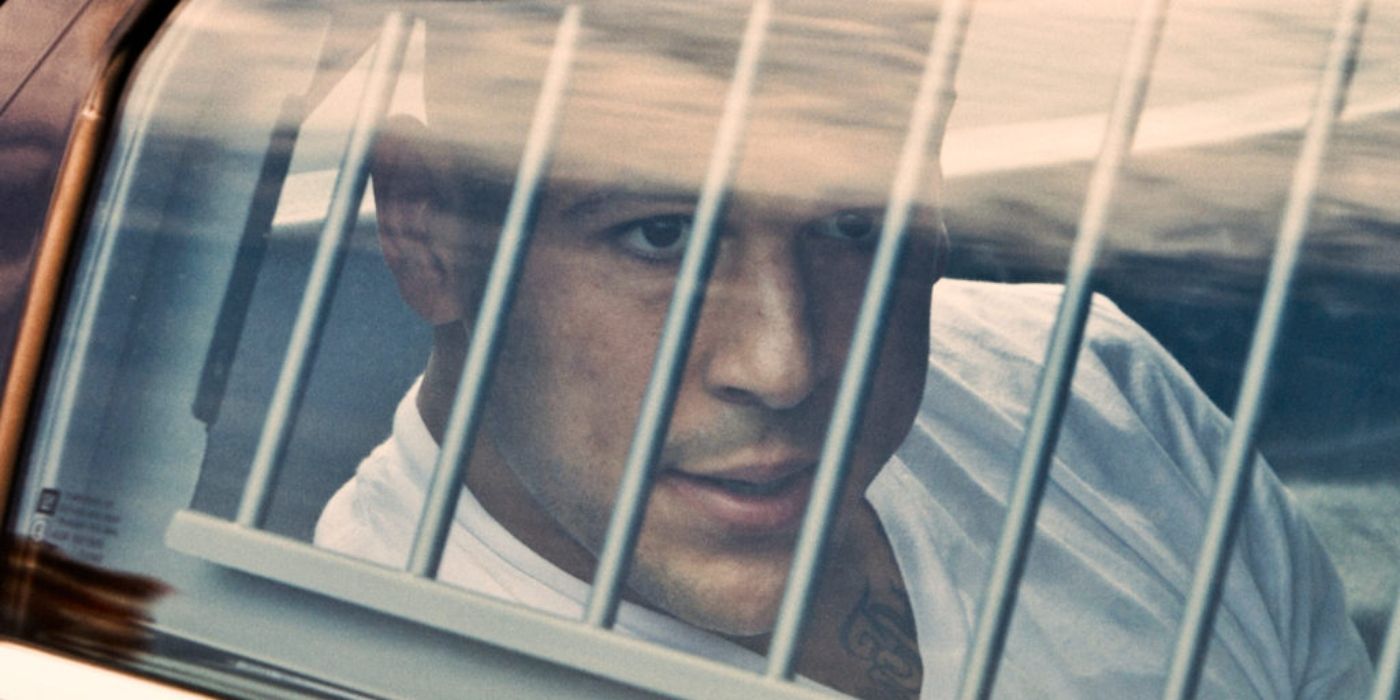
Related
Before ‘American Sports Story,’ Watch Netflix’s Aaron Hernandez Docuseries
The docuseries analyzes the downfall of one of America’s most promising athletes.
How different do you think things could have been for Aaron Hernandez, if he could have been his honest and true self?
RIVERA: It’s really easy to pin a lot of the “what if” on him not having secrets with anybody and with him being out and about himself, but there are a lot of other factors to consider that I think also contributed really heavily to the outcome. We didn’t know about the CTE until after he had passed. And also, there’s the amount of money that he made at a young age. And a particularly dangerous addition to the cocktail was that he found out, really early on, that he could get away with things because he was an athlete. He didn’t have to play by the same rules. That was all a very dangerous mixture in how things turned out. So, it’s hard to say. I think a few things would have to be different to make significant change. I think the really dangerous thing that happened early on in his life was him getting away with something that other people would not have gotten away with.
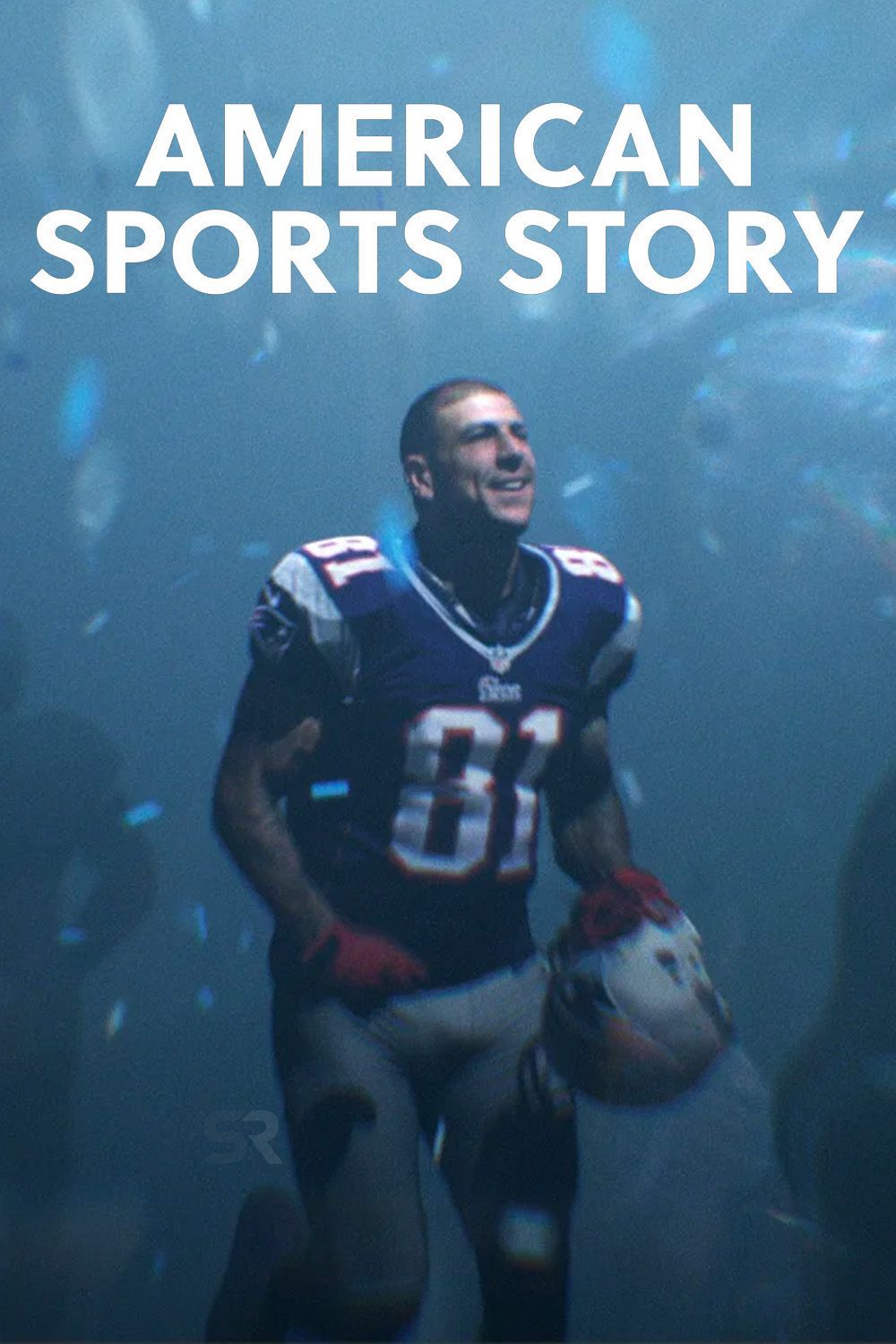
American Sports Story is a true-crime anthology TV series that explores pivotal moments in sports history, blending real events with dramatized retellings. The 2024 season delves into the controversial life and tragic death of NFL star Aaron Hernandez, examining his rise to fame, legal troubles, and the circumstances that led to his downfall, offering a deeper look into the dark side of professional sports.
- Release Date
- September 17, 2024
- Cast
- Josh Andrés Rivera , Patrick Schwarzenegger
- Seasons
- 1
American Sports Story: Aaron Hernandez airs on FX and is available to stream on Hulu. Check out this behind-the-scenes look:
Related
Here’s how Cadillac can become a true American F1 dream…
Credit: Instagram Cadillac (@cadillac) Cadillac F1 stands to have a huge chance to be an American team by and for Americans, something that Formula 1 so badly
Stephen A. Smith Contract Extension – Work Less, Earn More,…
Stephen A. Smith has just landed the contract of his life with ESPN!
American Athletic Conference becomes first league to set ‘minimum standard’…
The American Athletic Conference approved an initiative on Friday to establish a minimum standard of benefits that schools are required to share with athletes i
American Sports Entertainment Company Announces Strategic Partnership with Seidler Equity…
CHANDLER, Ariz., March 7, 2025 /PRNewswire/ -- American Sports Entertainment Company ("ASEC"),
